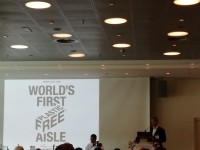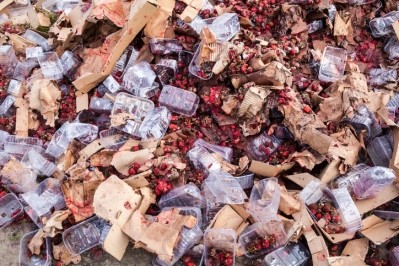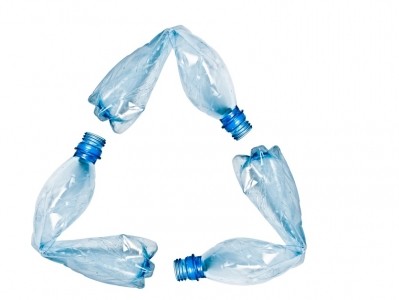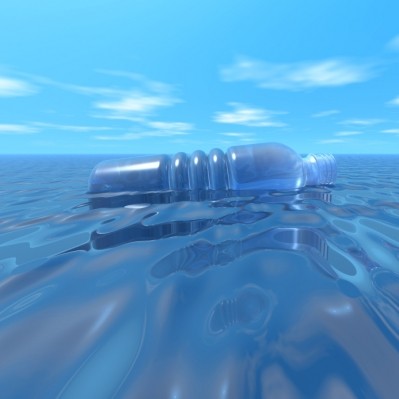Moving towards a plastic-free planet is 'an evolution, not a revolution'
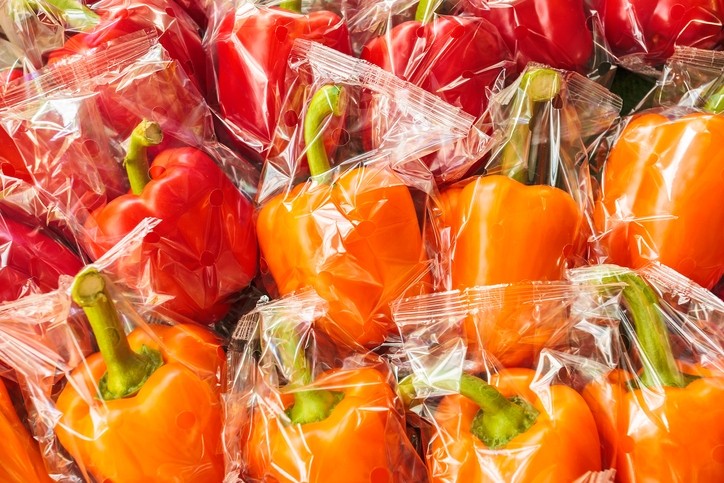
“We need a lot of different solutions for the plastic soup problem,” said Erik Does, CEO of Dutch organic wholesaler and retailer Ekoplaza at the Sustainable Food Summit in Amsterdam last week. “In some cases we need to completely break free, in some we need to use different materials and in others we need to recycle.”
Ekoplaza’s recently launched a plastic-free aisle with the help of UK-based non-profit A Plastic Planet. According to Does, the aisle is “a showcase to the world” that shows plastic-free can be “scalable, viable and totally convenient”.
The retail chain will also be adding a plastic-free logo to all relevant private label products.
“We don’t want packaging-free food but plastic-free packaging,” Does said. “Some small shops are doing packaging-free groceries but it’s not convenient on a large scale. Consumers want to take their food at the supermarket and run away.”
Finding the right packaging for a particular product can be challenging and requires a ‘trial and error’ approach.
For its private label meat range, for instance, Ekoplaza found the packaging “fell apart” after a while. “Now we order the packs more frequently and worked with the second and third generation packets. It’s an ongoing process.”
‘A plastic-free virtuous circle’
Ekoplaza’s plastic-free initiative found one (perhaps surprising) supporter: Japanese plastic manufacturing firm Futamura,
Andy Sweetman, sales and marketing manager at Futamura, praised the supermarket for kick-starting a virtuous circle. “It’s a good idea because it acts like a product showcase, showing people what can be done today with sustainable packaging.”
Increased visibility will drive sales, which will increase the amount invested into research and development (R&D), ultimately raising the performance and functionality of sustainable plastics.
Biojargon
Bioplastics can be biobased, biodegradable, or both.
Biobased: The term ‘biobased’ means that the material or product is (partly) derived from biomass, or in other words, plants. Biomass used for bioplastics could be corn, sugarcane or cellulose. Despite the 'green' source, biobased plastics can have exactly the same composition as plastics made from petro-chemicals.
Biodegradable: Biodegradation is a chemical process during which microorganisms that are available in the environment convert materials into natural substances such as water, carbon dioxide, and compost (artificial additives are not needed). The process of biodegradation depends on the surrounding environmental conditions (e.g. location or temperature), on the material and on the application.
‘Biobased’ does not equal ‘biodegradable’: The property of biodegradation does not depend on the resource basis of a material but is rather linked to its chemical structure. In other words, 100 percent biobased plastics may be non-biodegradable, and 100 percent fossil based plastics can biodegrade.
Source: European Bioplastics
Jacqueline Macalister, health and sustainability manager at Ikea Food, a business division that today generates over €2 billion in annual turnover for the Swedish furniture giant, agreed that innovation was necessary to match plastic's undeniable functionality.
“You don’t change things by fighting the existing model, you build a new one that makes the old model look obsolete,” she said.
Last week, Ikea announced it would be phasing out all single use plastic from its restaurants by 2020.
‘It’s not a revolution, it’s an evolution’
However, according to the marketing manager at Futamura, which also makes cellulose-based biodegradable packaging, Natureflex, the move towards sustainable plastic alternatives is “an evolution not a revolution” and not all elements will progress at the same rate.
“We don’t have the volume of these sustainable materials yet so demand needs to be balanced with supply.”
Sweetman described an exchange with one of Futamura’s retail customers who told its policy was not to use compostable materials until there were composting facilities in place.
“That’s like saying: ‘The Wright brothers should never have invented aeroplanes because there were no airports to land on’. Sometimes the technology comes before the infrastructure. Those two things need to be put together but that might not happen at the same time.”
“This argument is valid for all materials. We want compostable plastic to go into composting but also recyclable plastic to go into recycling. The problem is there’s no value in recycling so nobody wants to invest. Governments need to get involved,” he added.
Collaborative efforts
This was echoed by Does who spoke of the need to pressure policymakers to create a favourable environment. “I met Franz Timmermans in Brussels recently and asked him to raise the budget for innovation.”
Given the scale of the problem, actors both upstream and downstream needed to act.
“If retailers or manufacturers sourced products or ingredients locally, they would need less protective packaging. If consumers made their meals at home more often they wouldn’t need to wrap up the leftovers in so much plastic.”
According to Caryl Levine, co-founder and joint CEO of ethical rice company Lotus Foods, different actors in the food industry need to help each other.
“Everyone needs to be part of the solution,” she said. “For instance, retailers could choose to take smaller margins when they stock sustainably packaged products.”
The bottom line
The big question is, are companies willing to sacrifice profit margins to genuinely move away from plastic or are they just riding the wave of public anti-plastic sentiment?
“For us, this is not a marketing trick, it’s a total mission vision,” said Does. “If you want to make a change, you need to invest money [and] change starts with companies like us. Shareholder value is far too important.”
“We didn’t see thousands of new customers after this,” he admitted, “but our existing customers are definitely totally behind us and we did a lot in raising awareness. It’s well spent money.”
According to Amarjit Sahota, president and founder of Ecovia Intelligence, the benefits may not, in the short term at least, be financial. “Companies may not see monetary returns but could see return on investment in terms of goodwill and positive publicity.”
Even so, making the jump to sustainable packaging does not necessarily mean taking a massive bite out of the bottom line.
“It’s not always about a massive investment and money,” Does said. “We are a small chain with 74 shops in Holland and we managed to do this.”
Sweetman said the additional costs need to be seen in context. “If you take a very commoditised versus new bioplastic, it may be three times the cost. But when you translate that into the per product cost, it is one penny.”
Back up the claims
He also warned about companies claiming to use biodegradable plastics without any third-party certification to back up the claims, and said to look for the standard EN 13432.
